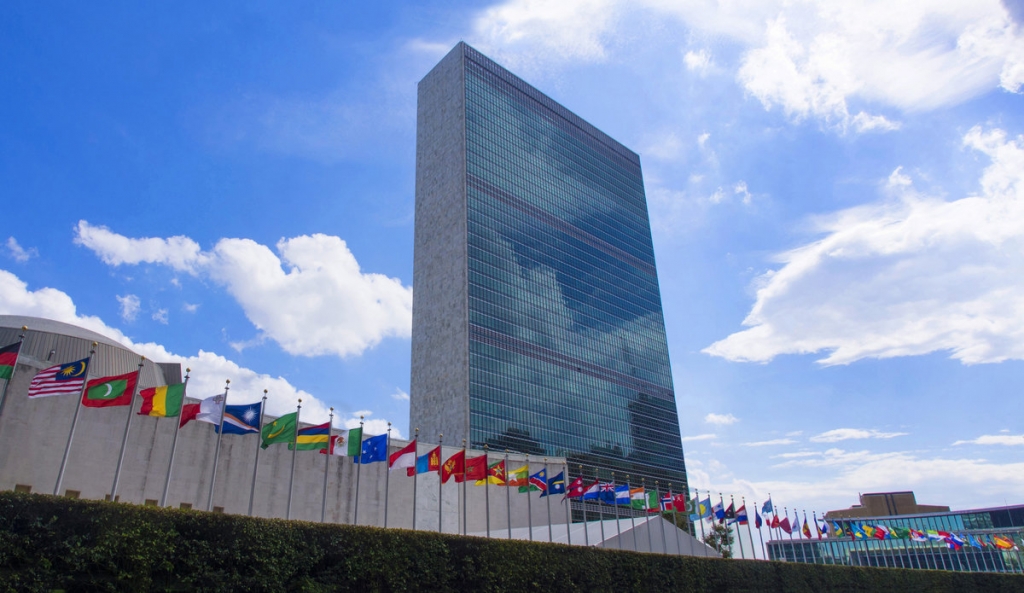Statement by Deputy Head of the Russian Delegation Mr. Konstantin Vorontsov at the Thematic Discussion on Other Weapons of Mass Destruction in the First Committee of the 77th Session of the UNGA
Mr. Chair,
We strictly adhere to our obligations under the Biological and Toxin Weapons Convention (BTWC) that outlawed the entire category of weapons of mass destruction (WMD). The BTWC should remain a reliable tool for reducing the threat of using biological agents as weapons and contribute to developing international biological cooperation for peaceful purposes. The utmost effectiveness of the Convention can be achieved only through the full implementation of its provisions by all States Parties, which could be ensured, in its turn, solely by adopting a legally binding Protocol to the Convention establishing a credible and efficient verification mechanism.
In order to address the issues in place around the implementation of the BTWC provisions by the United States and Ukraine with reference to the military and biological activities in the Ukrainian territory, Russia, in accordance with Article V of the BTWC and final documents of the Second and Third Review Conferences, initiated a Consultative Meeting of the States Parties. Despite all our efforts, we have not received exhaustive answers to the submitted detailed specific claims regarding those States' compliance with the provisions of Articles I and IV of the Convention. The issues remain open and pending solutions. To settle the current outrageous state of affairs, it is imperative to continue with their meaningful consideration within the BTWC, and specifically discuss the outcomes of the Consultative Meeting and follow-up activities at the Ninth Review Conference of the Convention. It is important, at the same time, not to be limited to consultations and exchange of views only but to engage the entire toolbox envisaged by the Convention, including Article VI of the BTWC, in order to investigate the violation of provisions of the Convention by the US and Ukraine.
The outcomes of the Meeting unveiled once again the vital need for institutional strengthening of the Convention. The whole spectrum of Russian initiatives is aimed at solving this task:
– creating mobile bio-medical units within the BTWC to assist in case of biological weapons use, investigate such use, and assist in combating infectious diseases of various origins and in training;
– establishing a Scientific Advisory Committee under the Convention to assess achievements in science and technology relevant to the Convention and to make appropriate recommendations;
– improving confidence-building measures by incorporating data on military and biological activity abroad into the reporting form;
– establishing a group of governmental experts within the BTWC to develop a specific mechanism for implementing Article VI of the Convention to investigate possible violations of the BTWC.
The proposal regarding Article VI of the BTWC does not in any way call into question the independent status of the UN Secretary-General's Mechanism for Investigation of Alleged Use of Chemical and Biological Weapons (SGM). On the contrary, these international instruments could complement each other with respect to the application of the BTWC and the 1925 Geneva Protocol for the Prohibition of the Use in War of Asphyxiating, Poisonous or Other Gases, and of Bacteriological Methods of Warfare.
Russia confirms its interest in strengthening the expertise and technical capacity of the SGM and intends to continue contributing to the overall efforts of the global community. In terms of the practical application of the SGM, we attach great importance to its principles and procedures (Annex I of UN document A/44/561). However, these principles and procedures, except for the annexes, have not been updated since their approval by UNGA resolution 45/57C of 4 December 1990. With a view to proceeding with the effective use of the SGM, the Russian Federation is submitting a draft resolution to the First Committee of the UNGA for consideration. We ask for support and co-sponsorship.
Mr. Chair,
The Russian Federation stood at the origins of the Convention on the Prohibition of the Development, Production, Stockpiling and Use of Chemical Weapons and on their Destruction (CWC) and has consistently advocated its strengthening. Our country is implementing in good faith the obligations assumed under this international treaty. In 2017, we destroyed one of the largest arsenals of chemical weapons three years ahead of the Organization for the Prohibition of Chemical Weapons (OPCW) deadline. We urge the United States, which has the financial and technological capacity to eliminate the remaining stockpiles of toxic substances as quickly as possible, to follow our example.
The situation at the OPCW itself continues to deteriorate. Euro-Atlantic allies led by the United States are deliberately pursuing a destructive policy of further politicizing the activities of this multilateral platform, which is technical in its purpose. Russia, along with Syria, is already being attacked with unfounded accusations of violations of the CWC. Insinuations about the "Skripal case" and the alleged "poisoning" of Alexey Navalny have already been supplemented by accusations that the Armed Forces of Russia are allegedly preparing the use of toxic chemicals or chemical weapons. This is against the background of the fact that since December 2021 we have been warning of possible provocations by Ukrainian formations, including with the direct involvement of foreign special services and private military companies, at chemical sector facilities in the south and south-east of Ukraine.
The Russian Federation has consistently opposed the unrestrained politicization by Western countries of the activities of the OPCW, which is moving further and further away from its original purpose: a key instrument for chemical disarmament and non-proliferation. We intend to continue to make every possible effort, together with our partners and supporters, to restore the spirit of consensus within the OPCW and the authority of this international structure.
Thank you.
